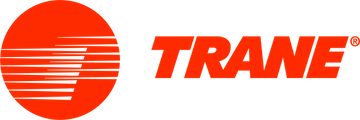First introduced in 2006, the EU F-gas regulation is well-established in the HVAC&R industry. It governs the use, containment and disposal of fluorinated greenhouse gases, with the aim of significantly reducing F-gas emissions by gradually phasing out hydrofluorocarbons (HFCs) and improving practices related to their use and disposal.
In February 2024, a new revision of the F-gas regulation known as EU 2024/573 was adopted. It now expands to more types of refrigerants and enforces even stricter rules on refrigerant management.
So, what does this mean for operators and how can your business ensure compliance?
What’s new in EU 2024/573
The 2024 revision of the F-gas regulation puts a stronger emphasis on the proper monitoring, handling and servicing of refrigeration systems. In other words, it requires:
• More regular leak inspections and/or a permanent leak detection system
• Safe recovery, reclaim, recovery and destruction of fluorinated gases
• Maintenance by qualified and certified technicians
A noticeable impact f the new regulation for equipment operators and facility managers is the number of leak inspections required.
Understanding leak inspection requirements
The frequency of leak inspections required depends on three factors:
1) The refrigerant’s global warming potential (GWP)
2) quantity of refrigerant used in the system, and
3) presence of leak detection system
The regulation has defined thresholds according to the refrigerant’s charge and, expressed in equivalent tonnes of carbon dioxide or ton CO2eq.
The table below lists the most commonly used refrigerants in HVAC applications, along with the leak inspection requirements according to EU 2024/573.
Tonnes of CO2 equivalent | Refrigerant type | Total refrigerant charge | Leak inspections required | |
Without LDS | With LDS | |||
Below 50 | R410A | < 24 kg | Every 12 months | Every 24 months |
R407c | < 28 kg | |||
R134a | < 35 kg | |||
R454B | < 72 kg | |||
R513a | < 79 kg | |||
50 – 500 | R410A | 24 – 239 kg | Every 6 months | Every 12 months |
R407c | 28 – 282 kg | |||
R134a | 35 – 350 kg | |||
R454B | 72 – 717 kg | |||
R513a | 79 – 792 kg | |||
Above 500 | R410A | > 239 kg | Permanent leak detection system is mandatory | Every 3 months |
R407c | > 282 kg | |||
R134a | > 350 kg | |||
R454B | > 717 kg | |||
R513a | > 792 kg | |||
The list above is non-exhaustive. For more details, consult the F-gas regulation.
Benefits of leak detectors
Installing permanent leak detectors is becoming a more common practice among operators and facility managers.
Leak monitoring systems are designed to detect and locate refrigerant leakages in HVAC systems to enable rapid repairs and prevent major complications. Rapidly detecting leaks is critical to avoid capacity loss and system inefficiency which will result in higher energy costs. It also contributes to environmental sustainability by preventing the discharge of hazardous gases into the atmosphere.
Now, having a permanent leak detector in place can also reduce by 50 percent the number of physical inspection visits required.
Why it matters for equipment operators and facility managers
The F-gas regulation affects equipment manufacturers and operators alike. Failing to comply can result in significant penalties, including financial fines, confiscation of goods, and even legal action, including potential criminal charges.
Refrigerant leakages are not only hazardous for the environment, they are also detrimental to your business. Preventing and managing refrigerant leaks helps facility managers avoid unplanned downtime and surges in energy costs. Therefore, it is critical to ensure that regular maintenance of your HVAC system is done by qualified and certified technicians.
With over 60 locations and over 1,2 00 qualified technicians across EMEA, Australia and New Zealand, Trane is positioned to help you run compliant and efficient HVAC operations. Run with us!
Consult a Trane specialist today to explore your options
Links to product pages:
• Refrigerant leak testing
• Refrigerant monitoring
Contact Us
Connect with your local Trane expert
We will help you find the needed solution

